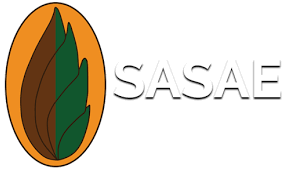The role of private agronomists towards the sustainability of commercial crop farmers in the eastern highveld of Mpumalanga, South Africa
DOI:
https://doi.org/10.17159/2413-3221/2022/v50n1a11704Keywords:
Agronomist, Advisor, Qualified advice, Sustainable crop productionAbstract
The face of extension and advisory services for agriculture in South Africa has changed significantly in recent years. The focus of government extension services has shifted to emerging farmers, impacting the quality of extension available to commercial farmers. This paper explores the effect of this shift on the sustainability of commercial crop farming in the Eastern Highveld. Three areas of advice and the impact on sustainability were researched, namely soil management, plant nutrition, and crop protection. Crop farmers regard all three as crucial for sustainability and prefer advisors to be knowledgeable in the following order of preference: plant nutrition, soil management, and crop protection. Most farmers are aware of their advisors’ qualifications and accreditations and discount advice by non-accredited and inexperienced advisors. Sustainable advice followed by responsible application is more effective in crop protection than soil management and plant nutrition. Over the past decade, the contribution of qualified advisors through improved decision-making increased yields by upwards of 40%. To maintain a high level of scientific and ethical advice, supply companies should employ qualified agronomists and promote the importance of qualified advice among stakeholders. Advisors should promote an ethical and professional relationship and regularly offer mentorship to qualified but inexperienced advisors.
Downloads
References
ABUTU, A., 2016. Experts call for open agricultural data platform. Viewed 15 May 2020. https://www.scidev.net/sub-saharan-africa/agriculture/news/agricultural-research-and-data-accessible.html?
AGCAREERS. 2020. Agronomist: what responsibilities will I have? Viewed 14 May 2020. https://www.agcareers.com/career-profiles/agronomist.cfm.
AGRICULTURAL RESEARCH COUNCIL (ARC). 1999. Parliamentiary briefing agriculture, Land Reform and Rural Development. Parliamentary briefing committee. Viewed 22 March 2020. https://pmg.org.za/committee-meeting/3128/.
BIRKHAEUSER, D., EVENSON, R. & FEDER, G., 1991. The economic impact of agricultural extension: a review. Economic development and cultural change, University of Chicago Press, vol. 39(3), pages 607 – 650, April.
BLANCA, J., NOE, E., BURMA, J., BURNETT, M., COMPAGNONE, C. & MARRACCINIE, E. 2010. The role and attitudes of agricultural advisors in implementing sustainable pest management in European agriculture – a cross national case study in NL, FR; UK and DK. 9th European IFSA Symposium, 4-7 July 2010, Vienna (Austria).
CARBERRY, P., HOCHMAN, Z., MCCOWN, R., DALGLIESH, N., FOALE, M., POULTON, J., HARGREAVES, D., CAWTHRAY, S., HILLCOAT, N. & ROBERTSON, M., 2002. The FARMSCAPE approach to decision support: farmers, advisors, researchers monitoring, simulation, communication, and performance evaluation. Agricultural Systems. 74 (2002), pages 141 – 177.
DARBAS, T. & LAWRENCE, D., 2011. The influence of agronomic advice upon soil water thresholds used for planting decisions in Southern Queensland’s grains region. Agricultural Systems. Volume 104, Issue 1, January 2011, pages 20 – 29.
EASTWOOD, C., AYRE, M., NETTLE, R. & DELA RUE, B., 2019. Making sense in the cloud: farm advisory services in a smart farming future. NJAS – Wageningen Journal of Life Sciences. https://doi.org/10.1016/j.njas.2019.04.004.
FOOD AND AGRICULTURE ORGANIZATION (FAO). 2020. Agricultural extension in transition worldwide. Policies and strategies for reform. Viewed 14 June 2020. http://www.fao.org/3/ca8199en/ca8199en.pdf.
GOSLING, M. & MOOLLA, Y. 2011. South Africa’s ever-shrinking farmers. Viewed 19 April 2020. https://www.iol.co.za/mercury/south-africas-ever-shrinking-farmers-1167943.
INGRAM, J. & MORRIS, C., 2007. The knowledge challenge within the transition towards sustainable soil management: an analysis of agricultural advisors in England. Land Use Policy Volume 24, Issue 1, January 2007, pages 100 – 117.
KALABA, M. 2015. The conversation on South Africa’s struggling agricultural sector: what went wrong 20 years ago. Viewed 4 April 2020. https://theconversation.com/south-africas-struggling-agricultural-sector-what-went-wrong-20-years-ago-45171.
KENTON, W., 2019. What is descriptive statistics? Viewed 5 March 2020. http//:www.research-methodology.net.
KHWIDZHILI, R. & WORTH, S. 2016. The sustainable agriculture imperative: implications for South African agricultural extension. S. Afr. J. Agric. Ext. Vol. 44, No. 2, 2016: 19 – 29.
KHWIDZHILI, R. & WORTH, S., 2019. Evaluation of South Africa’s public agricultural extension in the context of sustainable agriculture. S. Afr. J. Agric. Ext. Vol. 47 No. 1, 2019: 20 – 35.
KOCH, B. H. & TERBLANCHÉ, S. E., 2013. An overview of agricultural extension in South Africa. S. Afr. J. Agric. Vol. 41, 2013: 107 – 11.
MAKA, L. & ALIBER, M., 2019. The role of mentors in land reform projects support through the recapitalisation and development programme: findings from Buffalo City, Metropolitan municipality, South Africa. Viewed 11 May 2020. http://dx.doi.org/10.17159/2413-3221/2019/v47n2a50.
MILES, N., 2018. Dodgy soil fertility advisors cost farmers big bucks! KwaZulu-Natal Department of Agriculture and Environmental Affairs.
NETTLE, R., CRAWFORD, A. & BRIGHTLING, P., 2018. How private-sector farm advisors change. Viewed on 13 June 2020. https://www.precisionag.com/market-watch.
PORTER, C., 2015. The need for agronomists in the future: will technology take over? Farmers Guardian. Viewed on 10 April 2020. https://www.fginsight.com/vip/vip/the-need-for-agronomists-in- the-future-will-technology-take-over-5493.
SALEMBIER, C., SEGRESTIN, B., BERTHET, E., WEIL, B. & MEYNARD, J., 2018. Genealogy of design reasoning in agronomy: lessons for supporting the design of agricultural systems. Agricultural Systems. Volume 164. pages 277 – 290.
SEWELL, A., HARTNETT, M., GRAY, D., BLAIR, H., KEMP, P., KENYON, P., MORRIS, S. & WOOD, B., 2017. Using educational theory and research to refine agricultural extension: affordances and barriers for farmers’ earning and practice change. J. Agric. Educ. Ext. 23(4), 313 – 333.
SHARMA, S., 2019. Descriptive Statistics. Viewed 22 April 2020. https://www.researchgate.net/publication/333220406_Descriptive_Statistics.
SOUTH AFRICAN COUNCIL FOR NATURAL SCIENTIFIC PROFESSIONALS (SACNASP). 2019. Annual report 2018/19. Viewed 15 May 2020. https://www.sacnasp.org.za/annual-reports 2018/19.
STATS SA, 2020. Stats SA releases census of commercial Agriculture 2017 report. Viewed on 4 April 2020. http://www.statssa.gov.za/?s=agriculture.
Downloads
Published
Issue
Section
License
Copyright (c) 2022 P.W. Bruwer, R.H. Kwidzili

This work is licensed under a Creative Commons Attribution 4.0 International License.







.png)